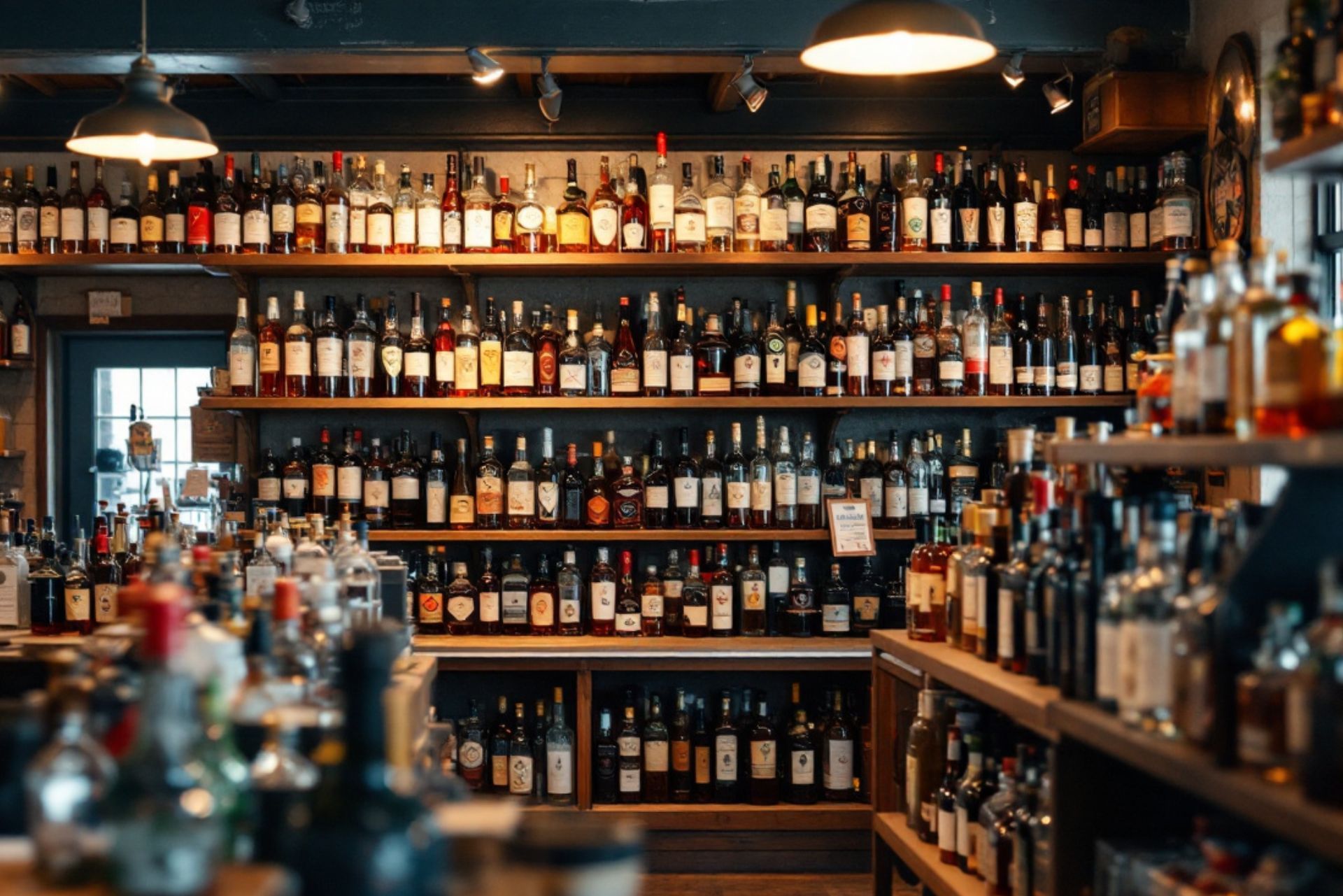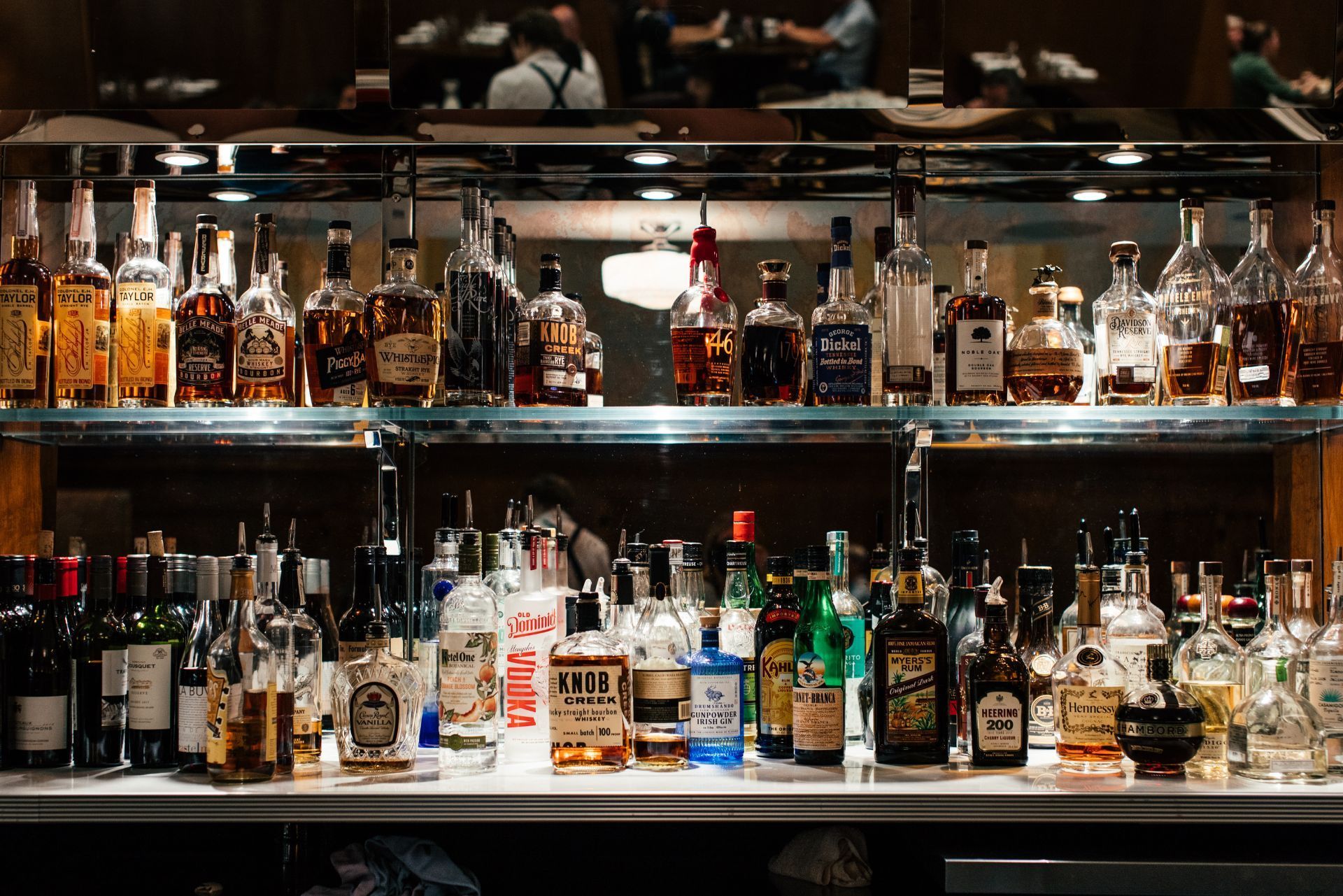
Most Common Business Policies
Index
Contact Us
Owning a liquor store in Texas can be a lucrative venture, but it also comes with its own set of risks and challenges. One of the most important aspects of running a successful business in this industry is having the right insurance coverage. This guide is designed to help liquor store owners understand the basics of liquor store insurance, navigate Texas laws, choose the right providers, and manage costs effectively.
Understanding the Basics of Liquor Store Insurance
Liquor store insurance is a specialized form of coverage designed to protect businesses in the alcoholic beverage retail sector. This type of insurance typically combines several different coverage types tailored to the unique challenges faced by liquor store owners. Given the complexities of operating within this industry, liquor store insurance is not just a luxury but a necessity for safeguarding your investment and ensuring business continuity.
Importance of Liquor Store Insurance
The importance of liquor store insurance cannot be overstated. Due to the nature of the business, liability risks are significant, especially concerning alcohol-related incidents. Insurance provides financial protection against lawsuits, accidents, property damage, and other unpredictable events that can negatively affect your business's bottom line. Furthermore, the stakes are particularly high in this industry, where the repercussions of a single incident can lead to substantial financial losses, potentially jeopardizing the future of your establishment.
Additionally, having adequate insurance coverage can enhance your credibility and foster customer trust. It demonstrates that you take your business seriously and are prepared for unforeseen circumstances, making customers feel more secure purchasing from you. This trust can translate into customer loyalty, which is invaluable in a competitive market. Moreover, many suppliers and distributors may require proof of insurance before entering into business relationships, making it a crucial element for operational success.
Types of Coverage for Liquor Store Insurance
Liquor store insurance typically encompasses several types of coverage, including:
- General Liability Insurance: This covers claims from customers who may be injured on your premises or suffer property damage due to your business operations.
- Liquor Liability Insurance: A critical component that protects against claims arising from alcohol-related incidents, such as over-serving a customer leading to an accident.
- Property Insurance: This covers damage to your building and inventory, protecting you against losses from fire, theft, or other perils.
- Business Interruption Insurance: Offers financial support during periods when your business is unable to operate due to covered losses, helping you maintain cash flow.
In addition to these essential coverages, liquor store owners may also consider adding specialized endorsements or riders to their policies. For instance, coverage for equipment breakdown can be vital if your refrigeration systems fail, potentially ruining perishable inventory. Similarly, cyber liability insurance has become increasingly important as more liquor stores embrace e-commerce and digital payment systems, protecting against data breaches and online fraud. By customizing your insurance policy with these additional protections, you can further mitigate risks and ensure comprehensive coverage for your unique business needs.

Texas has specific regulations governing liquor stores and their operations, including insurance requirements for business owners. Understanding these laws is essential for compliance and for ensuring you have the necessary coverage to protect your business.
Texas Liquor Liability Laws
Texas law mandates that liquor stores carry liquor liability insurance to cover the risks associated with serving alcoholic beverages. This insurance protects against claims that arise from injuries or damages caused by intoxicated patrons. It is essential for any liquor store owner to have this type of coverage in place, as failing to do so can expose you to significant financial risk.
Furthermore, Texas follows the "Dram Shop" law, which holds businesses legally responsible for injuries caused by serving alcohol to intoxicated individuals or minors. This underlines the importance of having adequate insurance to manage potential legal claims and financial liabilities. Additionally, liquor liability insurance can cover legal fees, settlements, and judgments, which can be substantial in the event of a lawsuit. Given the social and legal complexities surrounding alcohol consumption, having this coverage not only protects your business but also fosters a responsible drinking culture within your establishment.
Texas Property Insurance Laws for Liquor Stores
In Texas, there are no specific state laws that mandate property insurance for liquor stores; however, it is generally required by banks or financing institutions if you opt to lease or finance your property. It’s advisable to consider property insurance as a best practice. It protects your physical assets and inventory from potential loss, replacing or repairing damaged property due to various risks such as fires or vandalism.
Moreover, property insurance can also cover
business interruption, which is crucial for liquor stores that rely on consistent foot traffic and sales. In the unfortunate event of a disaster, such as a fire or severe weather, this coverage can help you recover lost income while your business is temporarily closed for repairs. Additionally, it can extend to protecting your inventory, which is particularly important for liquor stores that often have significant investments in stock. By ensuring comprehensive property insurance, liquor store owners can safeguard their operations against unforeseen circumstances that could threaten their livelihood.
Choosing the Right Insurance Provider in Texas
Selecting the right insurance provider is crucial for securing the best coverage for your liquor store. Not all insurers offer the same level of service, expertise, or policies tailored to liquor stores, so careful selection is necessary.
Factors to Consider When Choosing an Insurance Provider
When choosing an insurance provider, consider the following factors:
- Experience: Look for providers who specialize in alcohol retail or have significant experience working with liquor stores.
- Customer Service: Ensure the insurance company is known for excellent customer service and support during claims processing.
- Financial Stability: Verify that the insurer has strong financial ratings to ensure that they can pay claims when needed.
- Coverage Options: Assess whether the insurer provides comprehensive coverage options that meet your specific needs.
Evaluating Insurance Quotes
Once you have shortlisted potential insurance providers, the next step is to evaluate their quotes. Pay attention to the coverage limits, deductibles, exclusions, and premium costs. Comparing quotes will give you a clearer picture of the market rates and help you identify the best value for your business.
Additionally, ask about any bundled policies, as many insurers offer discounts for purchasing multiple types of insurance together. This can include general liability, property insurance, and even workers' compensation, which can significantly reduce your overall costs while ensuring comprehensive protection for your liquor store.
It’s also wise to inquire about any additional endorsements or riders that can be added to your policy. For instance, coverage for liquor liability is essential, as it protects against claims related to the sale of alcohol. Understanding the nuances of these additional coverages can help you tailor your policy to better fit the unique risks associated with operating a liquor store, ensuring that you are well-protected against potential liabilities.
Cost of Liquor Store Insurance in Texas
The cost of liquor store insurance can vary widely based on several factors, including the size of your business, location, and the coverage options you choose. Understanding the factors that influence these costs will help you budget effectively.
Factors Influencing the Cost of Insurance
Key factors that influence the cost of liquor store insurance include:
- Business Size: Larger liquor stores typically face higher premiums due to increased liabilities and larger inventories.
- Location: Stores located in high-risk areas or regions with a high incidence of alcohol-related incidents may see higher rates.
- Claims History: A history of prior claims can lead to increased premiums since it suggests higher risk to the insurer.
- Coverage Options: The more comprehensive your policy, the higher your premiums will be. Tailor your coverage to ensure you are paying for what you actually need.
Ways to Lower Your Insurance Premiums
Reducing your liquor store insurance premiums can be achieved through various strategies:
- Increase Deductibles: Opting for a higher deductible can lower your premium costs, but be sure you can afford the out-of-pocket cost if a claim arises.
- Bundle Insurance Policies: Consider purchasing multiple insurance policies from the same provider to receive multi-policy discounts.
- Maintain a Safe Environment: Implementing safety measures such as surveillance cameras and employee training can reduce risk, potentially leading to lower premiums.
- Regularly Review Coverage: Periodically reassessing your insurance needs can help avoid overpaying for unnecessary coverage.
Additionally, the type of products you sell can also impact your insurance costs. For instance, stores that offer a wider range of high-end liquors or craft beers may incur different liabilities compared to those that primarily sell standard brands. Specialty items often come with their own set of risks, and insurers may adjust premiums accordingly. Furthermore, engaging with your insurance agent to discuss the specific products you carry can lead to more tailored coverage options that accurately reflect your business needs.
Another important consideration is the legal landscape surrounding alcohol sales in Texas. Laws and regulations can vary significantly from one locality to another, which may affect your insurance rates. For example, areas with stricter enforcement of alcohol-related laws may see businesses facing higher premiums due to the perceived risk of fines or legal issues. Staying informed about local regulations and compliance requirements can not only help you avoid potential legal pitfalls but also provide leverage when negotiating your insurance terms and premiums.

Claiming Insurance for Liquor Stores in Texas
Filing an insurance claim can be a daunting process, but understanding when and how to file can simplify matters considerably. Navigating the claims process effectively is critical to ensuring your claim is processed smoothly and efficiently. For liquor store owners in Texas, being well-informed about insurance claims can make a significant difference in mitigating losses and maintaining business continuity.
When to File an Insurance Claim
It is essential to file an insurance claim as soon as you become aware of a potential loss. Delaying your claim could result in complications or deny coverage. Common scenarios where you should file a claim include:
- Property damage due to theft, vandalism, or natural disasters.
- Liability claims from accidents occurring on your premises.
- Business interruption due to unforeseen events affecting your operations.
In addition to these scenarios, liquor store owners should also be vigilant about specific risks unique to their industry. For example, incidents involving underage drinking or over-serving patrons can lead to significant liability claims. Moreover, the fluctuation of alcohol prices can impact your inventory value, making it essential to ensure that your coverage reflects the current market conditions. Understanding these nuances can help you better prepare for potential claims and protect your business assets.
The Process of Filing an Insurance Claim
The claims process generally involves several steps:
- Report the Incident: Notify your insurance provider immediately after an incident to start the claim process.
- Document Everything: Keep records of damages, expenses, and any relevant communications. Take photographs to provide evidence for your claim.
- Complete the Claim Forms: Fill out the necessary claims forms accurately and comprehensively.
- Follow Up: Stay in touch with your insurer for updates and be prepared to provide additional documentation if requested.
Additionally, it is advisable to familiarize yourself with your policy's specific terms and conditions before an incident occurs. Each insurance policy can vary significantly in terms of coverage limits, deductibles, and exclusions. By understanding these details, you can ensure that you are adequately covered and can expedite the claims process when necessary. Furthermore, consider consulting with an insurance agent who specializes in liquor store coverage; they can offer valuable insights and help you navigate the complexities of your policy, ensuring that you are well-prepared for any potential claims.
Frequently Asked Questions About Texas Liquor Store Insurance
As a liquor store owner in Texas, you may have several questions about insurance. Here are some frequently asked questions and answers to help clarify common concerns.
Common Misconceptions About Liquor Store Insurance
One of the biggest misconceptions is that all business insurance policies cover alcohol-related liabilities. In reality, liquor liability needs to be specifically included, or a general policy may not protect against these risks. Another misunderstanding is that smaller operations do not need substantial coverage. However, even smaller stores face significant liability risks and should have adequate protection. Additionally, many owners underestimate the importance of coverage for property damage, which can include everything from theft to natural disasters. In Texas, where severe weather can occur, having a robust property insurance policy is crucial to safeguarding your investment.
Essential Tips for First-Time Liquor Store Owners
If you’re a first-time liquor store owner considering insurance options, here are some helpful tips:
- Start by understanding your needs: Assess your business structure and size to determine what coverage you require.
- Consult with a knowledgeable agent: An insurance agent specializing in liquor store insurance can provide you with valuable insights and personalized options.
- Don’t rush the process: Take your time to compare policies and understand the details before making a commitment.
By remaining informed and proactive about your insurance needs, you can effectively protect your liquor store and ensure its long-term success. Furthermore, it’s wise to stay updated on local laws and regulations regarding alcohol sales, as these can impact your insurance requirements. Engaging with local business communities or associations can also provide additional resources and support, helping you navigate the complexities of running a liquor store in Texas. Networking with other business owners can lead to shared experiences and insights that can prove invaluable as you establish your store in the competitive market.


